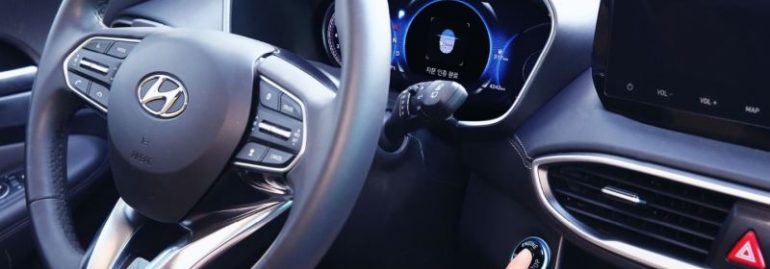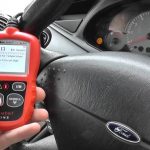In today’s ever-evolving automotive industry, data has become a powerful tool for understanding vehicle performance and identifying potential issues. At the forefront of this data-driven revolution is the OBD2 (On-Board Diagnostics) Data Logger – a device that unlocks a wealth of information about your vehicle.
This article delves into the world of OBD2 data logging, exploring its capabilities and how it empowers both car enthusiasts and professionals to gain invaluable insights into their vehicles’ inner workings. Get ready to dive deep into the realm of automotive diagnostics and discover why unlocking the power of vehicle insights with an OBD2 Data Logger is essential in maximizing efficiency, performance, and overall safety on the road.
Understanding OBD2: An Overview of On-Board Diagnostics
What is OBD2?
OBD2, which stands for On-Board Diagnostics 2, is a standardized system in vehicles that monitors and reports on various aspects of the vehicle’s performance. It was introduced in the 1990s as an improvement over its predecessor, OBD1.
How does OBD2 work?
OBD2 uses sensors located throughout the vehicle to collect data on important measurements such as engine speed, fuel consumption, and emissions levels. This data is then stored in the vehicle’s computer system called the Engine Control Module (ECM). When a fault or issue occurs with any aspect of the vehicle’s performance, such as a malfunctioning sensor or engine problem, it triggers a diagnostic trouble code (DTC), which helps identify what needs to be fixed.
Why is OBD2 important?
OBD2 plays a crucial role in diagnosing and fixing issues with modern vehicles. By accessing and analyzing this valuable data using an OBD2 data logger tool, it can help car owners better understand their vehicle’s health by monitoring factors like fuel efficiency; they can also detect potential problems before they become major issues saving time-consuming repairs costs down later.
Therefore providing detailed insights into various aspects of their driving habits while also offering peace of mind regarding any emerging risks.
The Power of Data: How OBD2 Logging Transforms Vehicle Insights
- Enhancing Performance Monitoring: With the help of OBD2 logging, vehicle owners can gain real-time insights into their vehicle’s performance. This data includes information about engine temperature, fuel efficiency, and emissions levels. By analyzing this data, drivers can identify any potential issues or areas for improvement in their vehicle’s performance.
- Improving Maintenance and Preventive Care: OBD2 logging enables proactive maintenance by providing continuous monitoring of a vehicle’s systems. It records important diagnostic trouble codes (DTCs) that indicate potential problems with the engine, transmission or other components. By regularly accessing this information, car owners can address issues early on, saving time and money on repairs.
- Maximizing Fuel Efficiency: OBD2 logging offers detailed information about a vehicle’s fuel consumption patterns. By tracking factors such as RPM (revolutions per minute), speed, acceleration and more, drivers can understand how driving habits impact fuel economy. Armed with these insights, they can adapt their driving style to maximize fuel efficiency and reduce overall costs.
Overall, investing in an OBD2 data logger provides valuable insights that empower individuals to optimize performance and save money through effective maintenance practices and smarter driving decisions.
Exploring OBD2 Parameters: What Can You Learn from the Data Logger?
The OBD2 data logger provides valuable insights into various aspects of a vehicle’s performance. By capturing and analyzing different parameters, such as engine RPM, speed, coolant temperature, and fuel consumption, you can gain a deeper understanding of your vehicle’s health and efficiency.
- Understanding engine performance: With the data logger, you can track the engine RPM to ensure it stays within recommended ranges. By monitoring this parameter over time, you can identify any irregularities or issues that may require attention.
- Monitoring fuel efficiency: The data logger captures information about fuel consumption rate, allowing you to assess how efficiently your vehicle is using fuel. This helps in identifying any changes that may affect mileage and overall efficiency.
- Detecting potential problems: Coolant temperature is another crucial parameter to monitor with the OBD2 data logger. Sudden spikes or drops in temperature could indicate cooling system issues that need immediate attention.
By exploring these and other parameters provided by the OBD2 data logger, you can make informed decisions about maintenance routines and potentially avoid costly repairs down the road.
OBD2 Data Logger vs Traditional Diagnostic Tools: A Comparison
OBD2 Data Logger versus Traditional Diagnostic Tools
When it comes to diagnosing vehicle issues and gathering insights, two main options exist: the OBD2 Data Logger and traditional diagnostic tools. Here is a comparison of these two approaches:
- Convenience: The OBD2 Data Logger offers unparalleled convenience with its compact size and ability to connect directly to the vehicle’s On-Board Diagnostic (OBD) port. This eliminates the need for complicated setups or bulky equipment. On the other hand, traditional diagnostic tools often require multiple cables and connectors, making them less user-friendly.
- Real-time Monitoring: With an OBD2 Data Logger, users can access real-time data from their vehicles at any given moment. This allows for immediate detection of issues and constant monitoring of performance metrics such as fuel consumption or engine temperature. Traditional diagnostic tools do not offer this level of instantaneous insight, usually requiring manual checks or time-consuming tests.
- Data Logging Capacity: Another advantage of the OBD2 Data Logger is its significant data logging capacity. It can store large amounts of information over time which can aid in analyzing long-term trends or detecting intermittent problems that may be missed during regular diagnostics sessions. In contrast, traditional diagnostic tools typically provide limited storage capabilities and may require frequent downloads or clearing space.
By comparing these two approaches to vehicle diagnostics, it becomes clear that the ODB2 Data Logger provides a more convenient and efficient solution for unlocking valuable insights into your vehicle’s performance.
Harnessing the Potential: Practical Applications of OBD2 Data Logging
Practical Applications of OBD2 Data Logging
Enhanced Vehicle Maintenance
OBD2 data logging enables real-time monitoring of the vehicle’s performance and health. By tracking parameters such as engine speed, coolant temperature, fuel trim, and oxygen sensor readings, mechanics can diagnose mechanical issues quickly. This prevents breakdowns or costly repairs by addressing potential problems before they worsen.
Improved Fuel Efficiency
Monitoring fuel consumption through OBD2 data logging allows drivers to identify factors that may be impacting their vehicle’s fuel efficiency negatively. By analyzing variables like air/fuel ratio, throttle position, and spark advance timing, users gain insights into how driving habits affect gas mileage. Armed with this information, individuals can make adjustments to save money on fuel costs while reducing their carbon footprint.
Performance Optimization
For automotive enthusiasts or professional race car drivers seeking technological advancements to enhance vehicle performance beyond factory settings using aftermarket modifications efficiently. OBD2 data logging provides a wealth of actionable information regarding acceleration rates, gear changes, and overall engine power. This empowers individuals in making informed decisions about upgrades or tuning procedures, resulting in an optimized driving experience.
Taking Control: How OBD2 Logging Empowers Vehicle Owners and Professionals
Improving Vehicle Maintenance
OBD2 logging allows vehicle owners and professionals to effectively monitor the performance of their vehicles. By collecting data on various parameters, such as engine temperature, fuel efficiency, and battery voltage, it provides valuable insights into the health and maintenance needs of a vehicle. This empowers users to take proactive steps in ensuring their vehicles are functioning optimally.
Diagnosing Issues
The ability to access real-time data from a vehicle’s onboard computer enables quick and accurate troubleshooting of issues. OBD2 logging helps identify potential problems by monitoring indicators like check engine codes, oxygen sensor readings, and throttle position. With this information at hand, car owners can pinpoint specific issues before they worsen or cause major damage. For professionals in the automotive industry, OBD2 logging enhances diagnostic capabilities during repairs and reduces guesswork.
Enhancing Performance Optimization
The detailed information provided by OBD2 logging also contributes to optimizing a vehicle’s performance. Users can analyze data related to speed patterns, RPM ranges, acceleration rates, and more to make adjustments that maximize fuel efficiency or increase horsepower. Understanding how different driving habits affect overall performance allows for smarter decision-making when it comes to upgrades or modifications.
Overall, the power of OBD2 logging lies in its ability to provide actionable insights that improve maintenance practices, reveal underlying issues, and enhance vehicle performance. With these key benefits, OBD “data loggers are essential tools for both vehicle owners and professionals in the automotive industry.”






